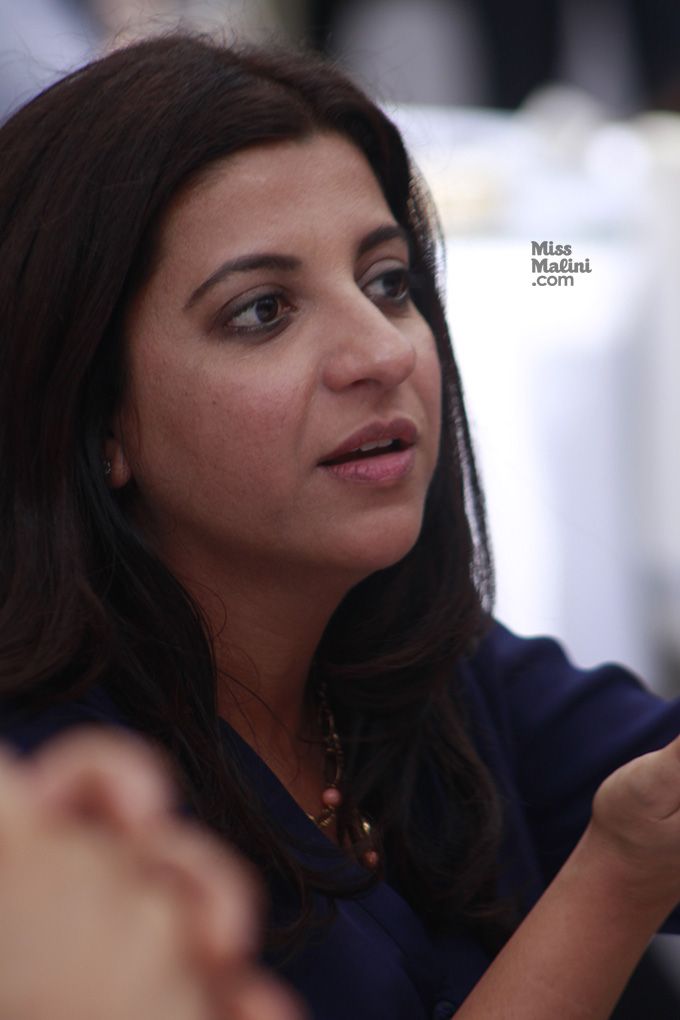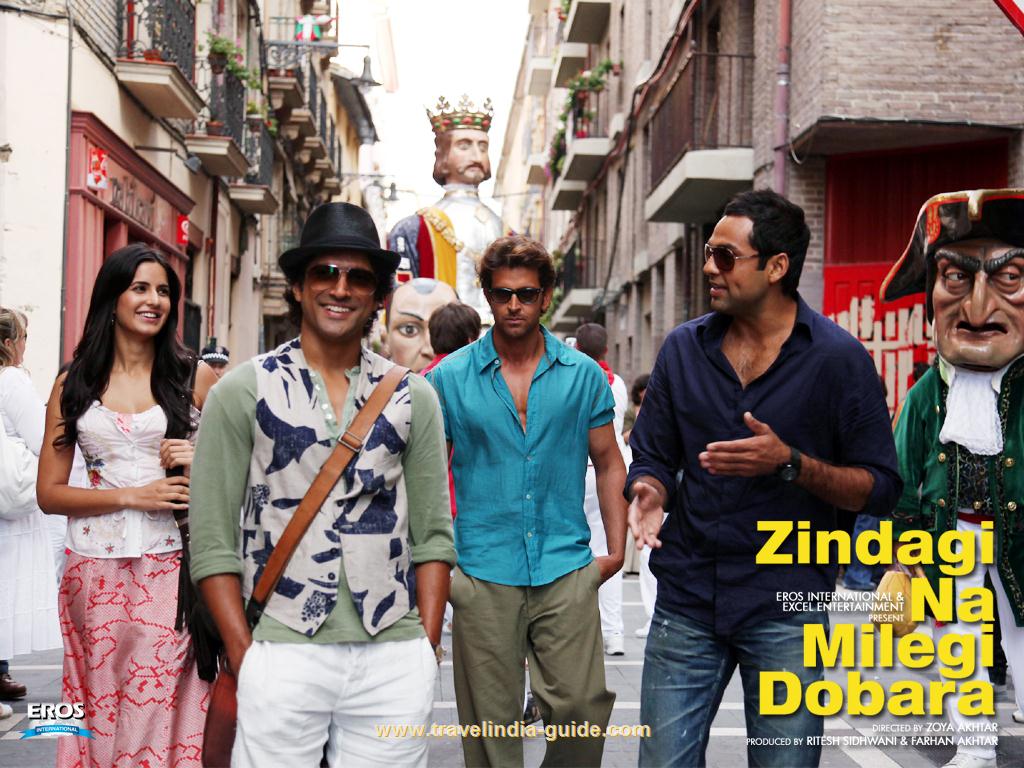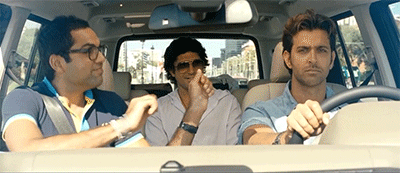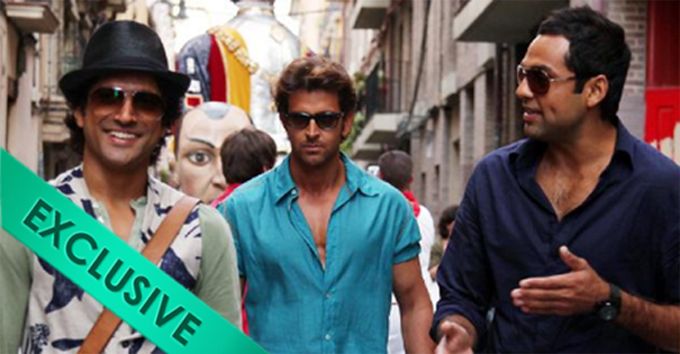
Every now and then a movie comes along that really changes the way of things. It touches lives and makes a huge contribution towards how cinema is perceived. Zoya Akhtar‘s Zindagi Na Milegi Dobara is one such gem from Bollywood.
ZNMD’s Wikipedia reads “Friends Kabir, Imran and Arjun take a vacation in Spain before Kabir’s marriage. The trip turns into an opportunity to mend fences, heal wounds, fall in love with life and combat their worst fears,” but the movie is so much more than that. Abhay Deol, Farhan Akhtar and Hrithik Roshan breathed life into their characters and Katrina Kaif‘s bit to the plot could not be missed. I’ve been a fangirl since it released in 2011.

I spoke to Zoya to ask her 10 questions I think all of us have had while watching and re-watching the film.
Here’s what she said:
1. Would the ‘mujhe afsos karna nahi aata’ kiss be as impactful if it wasn’t preceded by that epic bike ride?
The bike ride was important. The chase was important.
2. Have you had a ‘mujhe afsos karna nahi aata’ moment in your life ever?
Of course. Everyone does.
3. Would you like to casually tell us when?
Absolutely not!
4. When Imran threw Arjun’s phone out of the car, why wasn’t anyone’s first instinct to call it?
Because it went down a cliff. It was psychological to stop and look down and well, Arjun was really pissed off!

5. Would the movie have been any different if the protagonists weren’t as rich?
Well, the only real rich person in the film was Kabir because he has a family business. Arjun is working as a stock-broker in London. I mean, he’s doing well for himself but he’s not very wealthy. And Imran is a copywriter. Even the beginning of the film shows them going first business, then economy… But they’re three men in their early 30s, they all have careers. They can afford a trip to Spain.
6. Are the leads based on real people you know?
Snatches. But nobody in particular. Snatches and traits.
7. Have you ever envisioned this film with an all-female cast? Can that happen?

For some reason, I just never saw women in this film. Also because we wanted to use the sport. We wanted to use something that was cathartic and with men that’s simple because they don’t really talk. The silences in the film were really important. The internal worlds were important. And the catharsis with sports – not just using it for the adrenalin, but also for poetry, you know? The whole thing just lends itself better to men because they don’t really have heart to hearts. It’s rare. The kind of journey inward helped better with them.
8. I find Salman Habib’s character most underrated. Tell me something about him?

It was about Imran wanting to find his father. Where he comes from, he knows his father is an artist. The kind of character the father was, he had his own reasoning. He wasn’t very apologetic. And he did what he needed to do. There’s nothing politically wrong, but he is self-centred, you know? And Imran is that guy! So when Imran meets Salman and kind of sees himself, he realizes he doesn’t like it. It was basically that without saying all of it.
9. When you were in the writing stages of Zindagi Na Milegi Dobara, did you ever think that people will compare it to Farhan’s Dil Chahta Hai because of the ‘three friends coming of age’ angle?
Only after it was written we thought about it and then decided not to think about it. They are different films.
10. The best comment/reaction you got out of this movie?

The best comment I got was in PVR. I was in the loo, in line. A lady came up to me and said I want you to meet my mother and introduced me to this 80-year-old woman, who told me that she saw my movie and all her life she wanted to go to England. And after my film, she went. It’s the best thing that happened to me from the movie. She said she got very inspired. And I didn’t think the movie was for somebody of that profile. She was obviously someone who was born in The Raj, you know? So it must’ve meant a big deal to her! That was a huge thing!
What a film, man!

